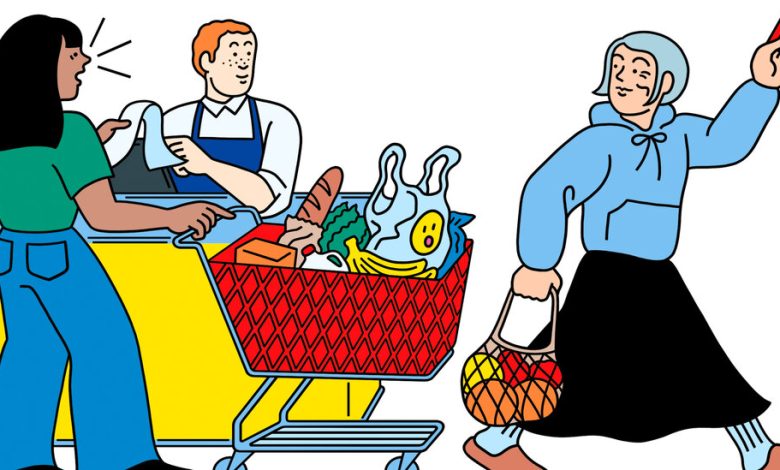A Stranger Bought My Groceries. Should I Have Refused Her Offer?

While checking out groceries at a supermarket, I realized my $120 in cash might not suffice and asked the cashier to stop tallying before $120. When I reached $119, an unknown woman approached the cashier and said she wanted to cover the orphaned groceries. I hesitated but ultimately agreed. After paying, she took off. I retrieved the $120 from my purse, only to be informed by the cashier that the woman had paid the entire $133 bill. I dashed out of the store to inform her of the error, but she insisted she’d intended to pay the entire bill. “Merry Christmas,” she said, before hurrying off. I was shocked and embarrassed.
I’m wondering about the ethics of Random Acts of Kindness. This generous woman had the appearance of someone who needed that money to pay for necessities more than I needed it at checkout. Should I have declined her offer? Is there another, better course of action I might have taken? — Name Withheld
From the Ethicist:
You recall feeling “shocked and embarrassed” — was this because you think you were mistaken for being poor, and you believe there’s something dishonorable about this condition? Or were you simply concerned, more honorably, that someone worse off than you burdened herself on your behalf?
It’s entirely possible that this woman did mistake you for a person in need (most shoppers have a credit card in their wallet); it’s also possible she just felt like being generous. She’s an adult who’s entitled to make her own decisions. You seem highly confident in your ability to size up people’s financial situation from their personal appearance. Are you really so certain that she’s unable to do the same? Sometimes the greatest gift we can give people is to accept their gift graciously.



